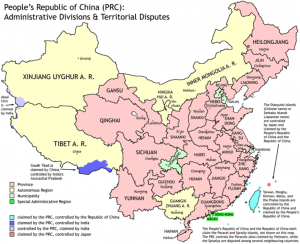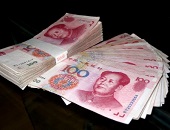“Hide one’s brilliance, bide one’s time” seems the most fitting aphorism for China’s global strategy, said Daniel Wagner, CEO of Country Risk Solutions. During an hour-long webinar on October 22, 2013 organized by the Global Association of Risk Professionals, Wagner guided the audience through China’s evolving geopolitical position generally, as well as its relationships with US, Asia, and Africa.
China is in the ascendant mode, said Wagner, citing the increasing use of the yuan as a reserve currency, as well as its rising military power. Regaining global dominance would be “like picking up where they left off,” he said, reminding the audience that China was a world power many centuries ago, from the 11th century until it was displaced by the Industrial Revolution.
China desires stability to ensure continued economic growth. It wants to pursue its political interests are “in a non-confrontational style,” said Wagner. Typically China abstains from getting involved in international issues such as the UN Security Council debate on Syria because it does not want to interfere with domestic affairs of other countries, and expects the same non-interference from other countries.
Of great interest to the audience was a map Wagner showed, based on the 1927 Atlas of the Century of National Humiliation in Modern China. (See slide 7 in his GARP presentation.) Territorial disputes, and in some cases, outright loss of territories, have rankled the national spirit. (Shown here is the Wiki map of disputed territories and autonomous regions.)

China supports the principle of state sovereignty and self-determination, but not actively. It’s content to “sit back and let conflicts happen, then swoop in and collect the prize,” said Wagner, citing Iraq as an example. In June 2013, the New York Times reported that after “the American-led invasion of 2003, Iraq has become one of the world’s top oil producers, and China is now its biggest customer.”
Wagner described the “Chimerica” loop, in which China saves and manufactures, and the US spends and consumes. The two partners “need but don’t necessarily like” each other. There has been a lot of stress in the relationship due to charges over cyber-spying, Wagner noted, although he believes US President Barack Obama and Chinese President Xi Jinping have reached some understanding.
A recent analysis in The Guardian compares China and the US on dozens of factors, everything from gross domestic product (GDP) growth to size of film industry. [Ed. Note: the data are available for download from the Guardian website.]
Wagner said Obama is aware that China is both an opportunity and a threat. The change in top US policy-makers has affected America’s pivot toward Asia, because the current team of US Secretary of State John Kerry and US National Security Adviser Susan Rice “do not have the same enthusiasm” for the pivot as their previous counterparts Hillary Clinton and Tom Donilon, respectively. ª
The webinar presentation slides can be found at: http://event.on24.com/r.htm?e=686972&s=1&k=6DFE3B2BCC31F8985C8F9EA765820D68>
Daniel Wagner’s latest book can be found at: www.Managing Country Risk.com
Check out other resources available at Country Risk Solutions: www.countryrisksolutions.com
The previous GARP presentation by Daniel Wagner (on the Eurozone) is summarized at: http://textmedic.ca/global-implications-of-the-eurozone-crisis/

